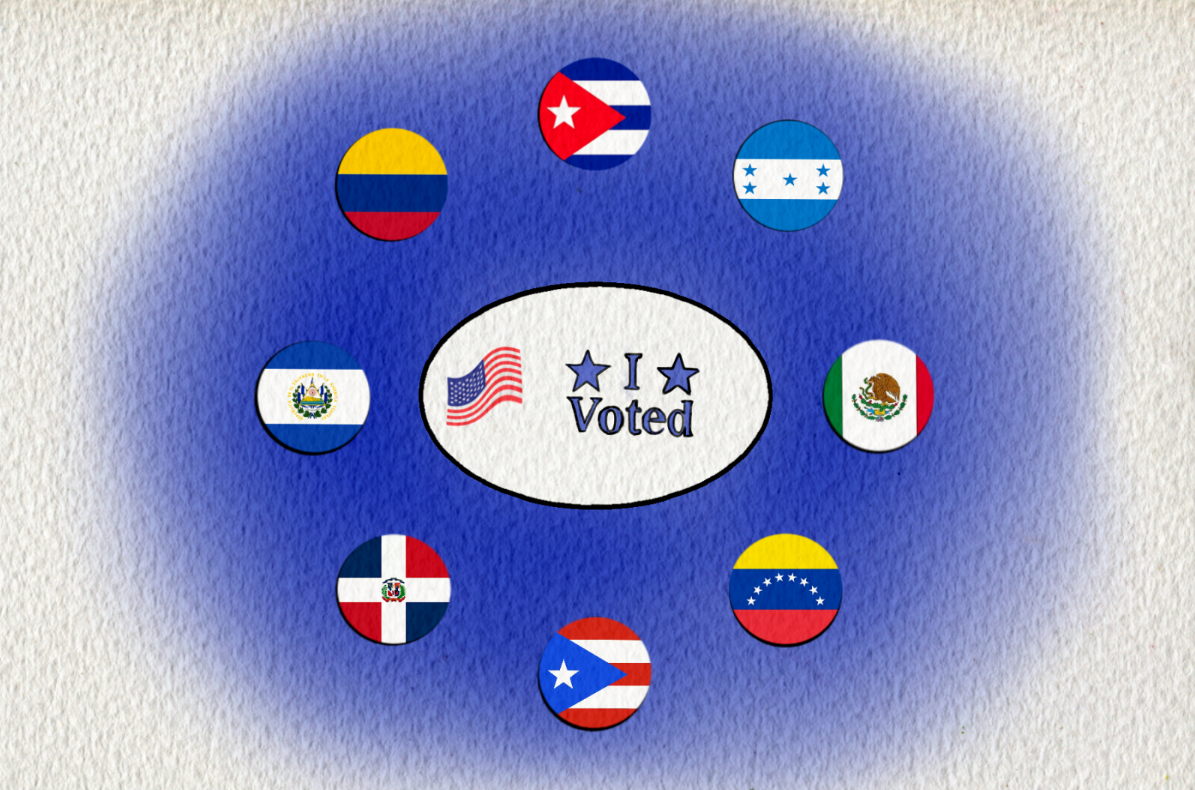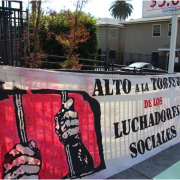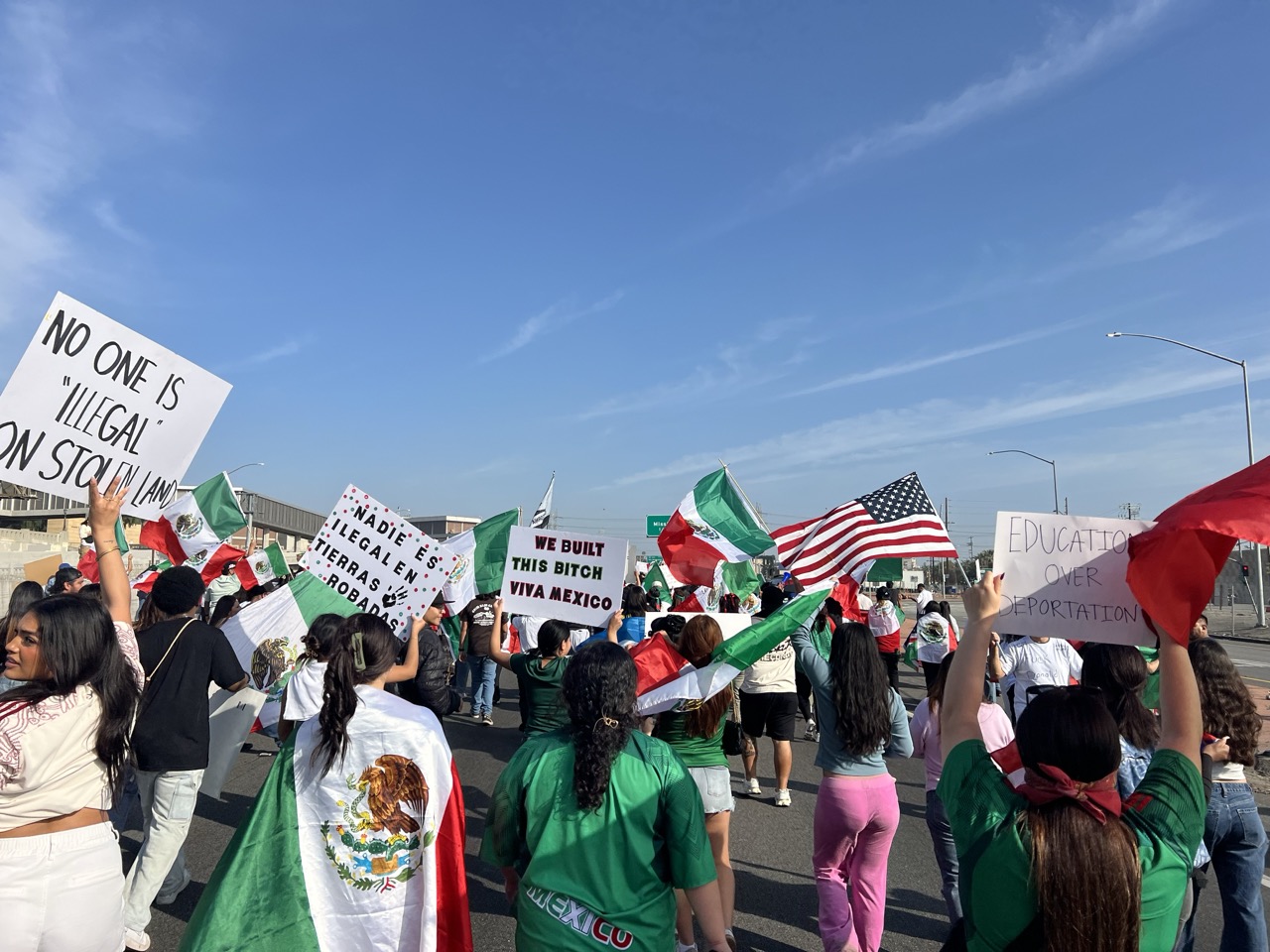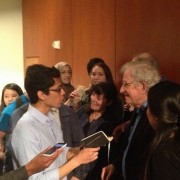The Growing Power of the Latine Vote

Graphic designed by Marissa Bermudez
In the 2020 presidential election, Latines had some of the lowest rates in both registration and voter turnout. 61.1% of the Latine population registered to vote in 2020. Yet, only 53.7% of those registered voters actually voted. It has been a long withstanding statistic that, overall, young voters are unfortunate victims of low voter turnout– and an even bigger portion of these figures are young Latine voters.
The 2024 election held a high Latine voter turnout, and although empowering, it is unfortunate that many of the Latine voices that had not been illustrated in previous elections, voted conservatively. President-elect Donald Trump has made it very clear where his policies and opinions lie in respect to many of our Latine friends and families, so it is worrisome to see such high interest in voting for him. The results of the 2024 presidential election left young voters in a mix of tumultuous uproar and confusion. But if many students are confused about the election’s outcome, this begs the question: who and what do Latine students at UCLA truly want to see in office?
The comments Donald Trump has made regarding Latin American countries and immigration in his past 12 years as a political figure have not gone unheard by the Latine community. Over the past couple of years, Donald Trump has made it clear that he views the migrant population as “animals” and “not human.” This has inspired young Latine voters to rise above the rest, to apprise the world and media, and voice their demands for the 2024-2028 presidential administration.
Kevin Briseño, a first-year Physical and Environmental Sciences major from San Bernardino, CA, expressed his support for the Kamala Harris-Tim Walz campaign by stating that advocacy for the middle to low-income working class is “the most crucial characteristic” in a presidential candidate. With less than 3% of all U.S. politicians coming from working-class backgrounds, there is a notable disconnect between our legislature and the populations they govern. As of 2021, the working middle class made up about 50% of the United States’ population (45% of this population is made up of workers of color) which demonstrates perfectly where the focus of our president’s policies should lie.
Bernie Sanders took to X a day after the election to criticize the Democratic Party on its contradictory support of the working class, yet continuing to ignore their demands for policies on financial welfare. Lately, the tax dollars of working-class Americans have been funneled into providing support to countries such as Israel. This has left low-income U.S. citizens to grapple with finding various resources like affordable housing due to neglect in government funding. Thus, protections and support for low-income communities have continued to be a focal issue for Latines.
Another student from UCLA, Eloisa Colotl, a first-year Political Science major, said, “You can honestly expect somebody like the previous presidents, but you always want to see somebody in office who will understand. Not necessarily be a part of every group, but understand the struggle that each and every one of them has gone through.” Economic representation in office and a lack thereof is reflected through the 16% to 25% shift in support of nonwhite working-class voters from the Democratic Party to the Republican Party in recent elections. Voters, particularly voters of color, are simply not feeling represented by the candidates whose names they are bubbling on their ballots, and it is resulting in a conservative lean.
Additionally, civic engagement has also been a center of attention for first-time Latine voters, as stated by Diego Sanchez, second-year transfer Political Science major. For a lot of first-generation students, this election may be their first time voting in a presidential election, and they may have no idea where to begin. They may have difficulty in finding resources for voting, such as where to find unbiased information, how to correctly register to vote, or how to cast a ballot. However, the widespread use of social media has significantly boosted the encouragement to vote. On the UCLA campus, students were pushed to reach the polls through social media posts, flyers, stickers, social events, and politically active students.
Ashley Ajanel, a second-year student majoring in Political Science, shared how happy she was to see the encouragement of Latine voting at UCLA. There are many Latine students with families who may not be able to vote, so using their vote is like speaking up for them. A little less than half of American immigrants were ineligible to vote in the 2024 presidential election. With this statistic, the responsibility of partaking in democracy falls on the youth of today. The essence of voting is captured in the idea that your vote– whether it’s for a candidate or a policy– will benefit society as a whole.
The Latine community has made staggering strides in the positive direction of voting. We have certainly come a long way from our country’s first election which only incorporated the vote of white male landowners. The future of tomorrow and the history of today are mounted on the shoulders of those who decide to vote for the people and be their voice. As a voter, you get the opportunity to be the mediator between someone’s fear of today and hope for tomorrow







